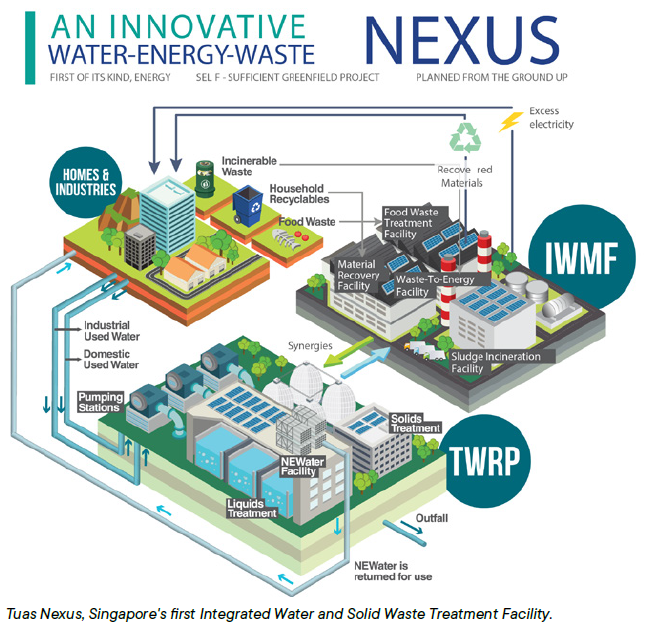Reducing Carbon Emissions through Energy Efficiency
PUB, together with our research partners, actively explores innovative and more energy-efficient technologies for adoption in new plants and infrastructure to reduce our energy and carbon footprint.
Enhanced Efficiencies in Water Treatment Processes
Water treatment processes to desalinate seawater is energy intensive. To reduce the energy footprint from these water sources, PUB is exploring technologies such as ultra-permeable membranes, pressure retarded osmosis and ceramic membranes for pre-treatment and closed-circuit reverse osmosis to bring the energy requirement for desalination down from the current 3.5 kWh/m
3 to 2.0 kWh/m
3. This reduces carbon emissions from the desalination treatment process by 40%, equivalent to 0.6 kg of CO
2 per cubic metre of water treated.
PUB is also placing a heavy emphasis on energy efficiency for wastewater treatment and is constructing Singapore’s first energy self-sufficient water reclamation plant that is co-located with NEA’s Integrated Waste Management Facility (IWMF) to form Tuas Nexus. By harnessing process synergies from used water and solid waste and new technologies such as biologically enhanced primary treatment used biosorption, step-feed and energy efficient membrane bioreactor and thermal hydrolysis, the upcoming Tuas WRP will maximise energy and resource recovery.


